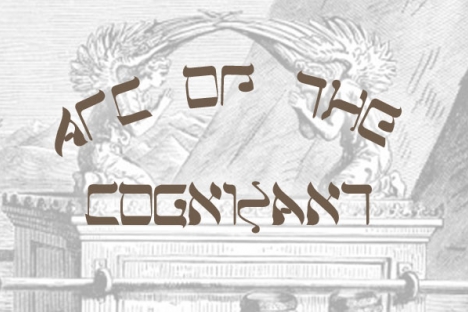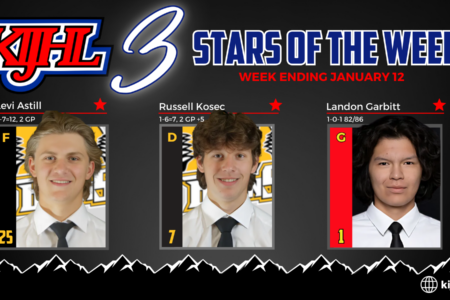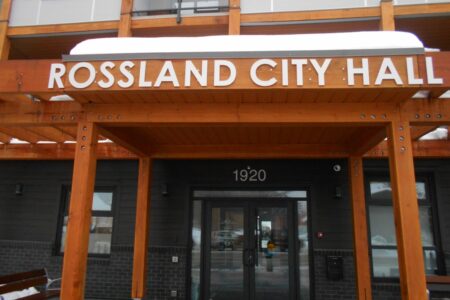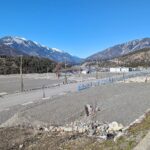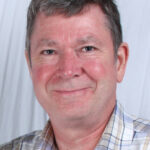The Agenda for Human Transformation: so many voices, so little time
“Too many, reaching for a piece of cake. … Too many hungry people, losing weight.” Paul McCartney
“There’s too much confusion, I can’t get no relief.” Bob Dylan
“I was always working steady, but I never called it art. / I had my shit together, reading Christ and reading Marx. … Go ask the young Messiah, what happens to the heart? … Listen to the mind of God, don’t listen to me. … You were born to judge the world. / Forgive me, but I wasn’t.” Leonard Cohen (from different songs)
“And what rough beast, its hour come round at last, / slouches towards Bethlehem to be born?” W. B. Yeats
The First World thinks it has solutions. Is anyone listening?
I, and most likely local people who read my column, live in conditions of peace, plenty, health, freedom, opportunity, information, and rights beyond hope of billions of humans on earth. Any dialogue I choose to have online about the solutions to global challenges such as poverty, disease, peace, and climate change, are with a small fraction of humanity’s population, people not much different from me, like members of one family differing from one another. I share a Western education and culture with people who think and read, write and speak, about global affairs.
I know my tribe. Liberals and socialists, politically, to use the convenient nouns. People in principle opposed to capitalism, but living productively within it, earning and paying their way, and obeying its norms and limitations. Interested in news and current affairs. Rationalists, secularists, scientifically-literate. Activists, feminists, environmentalists, social-justice warriors, to use a few more nouns. Being spiritual in their own ways, but not religious. Cultured. Well-travelled.
These members of my tribe and I agree that we see, as Lessons from History, that the Family of Humanity must: Erase divisions of race, ethnicity, creed, nation, state, gender, ideology, and sexuality. Share equitably the wealth humankind produces. Act with compassion for all our fellow-humans. Make an end to violence as a legitimate instrument of policy. Make an end to the devastation of the natural world and other species by the impact of humanity on the planet. Improve our being.
Maybe if I just write, “the world according to John Lennon in his song Imagine,” I would make the tribal viewpoint succinctly. Here are the lyrics:
Imagine there’s no heaven/It’s easy if you try / No hell below us / Above us only sky/
Imagine all the people living for today.
Imagine there’s no countries/It isn’t hard to do / Nothing to kill or die for / And no religion too / Imagine all the people living life in peace.
You may say I’m a dreamer / But I’m not the only one / I hope some day you’ll join us / And the world will be as one.
Imagine no possessions / I wonder if you can / No need for greed or hunger / A brotherhood of man / Imagine all the people sharing all the world.
You may say I’m a dreamer / But I’m not the only one / I hope some day you’ll join us / And the world will be as one.
“Some day YOU’LL join US.” Note who already lives and dreams the utopia, who has yet to join. John, and his dream, are the cutting edge, out at the front of humanity’s forward walk. This is the authentic voice of first-world progressivist ideology.
John Lennon is eminently relate-able for my tribe. My tribe is not of one age cohort, but a large fraction are of the Boomer generation, we who knew the Beatles and revered their music when we were teens. Dylan, Joni Mitchell, the Stones, and Crosby, Stills, Nash and Young, were musicians whose lyrics expressed our younger minds. While we are realistic about living with capitalism, our ideals are not dead.
The idealism voiced in Lennon’s lyrics are the ideals of a very large number of my tribe. But my tribe is a pretty small fraction of the global human population.
I remind myself of this constantly. Otherwise I will be as mistaken as so many of my peers who seem unaware that our perspective, our world-view, is not that of all humanity. And many seem unaware too, that their belief in their ideals is not a self-evident truth.
Lennon’s dream is not an “is” but a “should” of our tribe, an aspiration we hold for humanity without knowing whether we can bring others to our point of view by reasoned persuasion and sound argument. We try to describe a visionary new world; others may well hear not a description, but a prescription, of what “improvement” is.
China, India, and Russia: when three billion people are “wrong”
What facts do I need to adduce to demonstrate that the Chinese, the Indians, and the Russians, are not encountering the same information, perspectives, ideals and ideology as my tribe believes to be fact, not idea? That over three billion people in these three enormous world powers do not believe our Imagine truth is self-evident.
It will be plain to some readers that what I am asking them to do is to embrace relativism, and by so doing, consider post-modernism is valid, that its stress on truth as non-universal, must be taken seriously.
China wants to be a world power, as it was for so much of its history before 1830, after which European Imperialism created new geopolitics and a global economy dominated by modern Western capitalism. In fact, China has become what its leadership wanted, a Power in all the spheres Europe dominated until 1990.
And China did not do this by being focused on modern Western democratic governance, human rights, and freedom of the individual. It focused on power and wealth, in just the same way Europe did in the nineteenth century. China is an imperial power, reaching westward across Asia, suppressing the Muslim Uighurs there along its New Silk Road to the Mid-East and Africa, simultaneously extending investment eastward across the Pacific to the Caribbean and Latin America. One fond dream of its strategy is to replace the American dollar with the Chinese yuan as the standard of global currency one day. Maybe have the UN open another HQ in Beijing.
This agenda is at the command of the Communist Party and its infallible leader Xi Jingpeng. All of it happens while the Chinese learn about their history during the “one hundred years of humiliation” at the hands of the West and its empires from 1850 to 1950. The Chinese learn what the leaders want them to learn; “Xi Jinpeng Thought” is elevated to equality with the thought of Marx, Lenin, and Mao.
How would Chinese learn the truth of Lennon and the Brotherhood of Man?
India, whose Prime Minister Modi wants to re-brand his nation as “Hindustan” and not accept Muslims as immigrants qualified for citizenship, also cannot embrace the Lennon perspective. Nor can Russia’s Putin, fiercely certain that “the West” wants only to enfeeble and ruin Russia, and still grieving the disintegration of the imperial power of the USSR.
Billions of people, immune to Lennon’s siren song.
South of us, Americans are very aware that within their own national community a fault-line runs deeply through their politics, defined by the person of their President. Trumpeters are not fans of the Lennon perspex.
Canada: the fracture lines are prepared
Perhaps we should pull our horizons back to our own country. Here we are agreed in principle to the Lennon blueprint for a wonderful world order. Aren’t we?
There are those pesky conservative people who are still religiously devout and oppose abortion — which we progressives prefer to call “a woman’s right to choose.” Lennon has few fans among that crowd. There are occasional reminders of lingering racism and anti-Semitism too. (The latter is especially pernicious when it disguises itself on the Left as hostility to Israel and its colonialist policies.) Canada has its equivalents of the guichets jaunes in France, a section of the working class wishing no change in their materialist lifestyle and their first-world comforts in the welfare state. When one lives in first-world material security, one does not want to go backward to less. This seems to me pretty evident from human behaviour.
Three quick snapshot stories in the news at the end of 2019 gives me clues to how Canadians are in no way unified by a progressivist, Lennonesque agenda:
A story out of northern BC revealed that one RCMP strategy to deal with Indigenous protestors who would attempt to stop a fossil-fuels pipeline under construction included the potential use of lethal force. The pipeline was apparently deemed worth killing for.
Second, in New Brunswick late last year, a pulp and lumber mill in Minto will be completely shut-down due to effluent pollution on a native reserve; the Province had promised aboriginal leaders five years ago that the pollution would be outlawed. Across the province, and the nation, voices were raised to protest this “sudden” imposition on the corporation of environmental law and the honouring of native land and health; jobs must not be eliminated, too many workers will suffer if they are.
Third, in Saskatchewan, a school board has had to apologize for a seasonal teaching to students with curriculum content titled “Santa’s Green Christmas.” The eco-friendly message of the lesson might seem to be “anti-oil” and the authorities in the school district were duly sorry for appearing to offend an important industry.
Jobs, or the environment and climate? Jobs, or reconciliation with natives? Make no mistake – this is the battle line of the near future in Canada. Immigration is also on the horizon as an issue. Progressivists – my tribe, if I have to declare myself – seem certain they are on “The Right Side of History” and their eco-conscious, deeply native-friendly, immigration-positive agenda will prevail.
And I have not even mentioned issues around gender identity, about which members of the “woke” tribe believe they know a truth (again, others must learn it; it is just a matter of the slow ones catching up with progress) – the truth that gender is a construct, that sex is “assigned” at birth (by patriarchal culture) when it is in fact a fluid spectrum where each person is free to choose an identity others must accept as true. Identity of your body is, like so much, a matter of choice, not fate.
John Lennon lived and died before this particular gender issue raised its head. Who believes this woke perspective is the majority view among Canadians? The CBC does. Their journalists use the phrase “assigned gender” in news stories.
When Realities collide: warning signs of discord
I will move the horizon in even closer and write now about BC, nowhere more distant. We too live in a house divided against itself.
Consider the lives and social reality portrayed in three films made here in the West Kootenay. The first two films are A Simple Curve and Hollow in the Land, the former purporting to show the Slocan Valley in around 2005, and the latter, working-class life in Castlegar; they are not documentaries, but dramas telling stories very much grounded in our local communities. Still, the sociology in the setting is valid.
The life of the people in Curve shows one particular reality, backgrounding a father-son drama, where society is counter-cultural. The valley folk in the film reveal their origins in 1960’s hippie, back-to-the-land, US-draft-evasion times. In Hollow, the story is crime melodrama with the focus on a brother-sister tale, of working people and the socio-economy of small industrial cities in BC. Drugs and violence are present in the shadows, conformity among young people subtly enforced by their own social codes. The youth portrayed in the two films I named would never mix socially. This is observable in our area to anyone who pays attention to youth.
The third film I would cite for a view into local social and cultural reality would be Only in Nelson. Nelson, dare I say it, has a hubris issue, a sense of some unique quality possessed by this one city, magically, surrounding it with a bubble of niceness and good fortune. I have lived here long enough to know and experience a real, but slow and incremental, decline in Nelson over the decades, due to constant addition of more human population, commerce, and attendant negative impacts.
As I myself have reflected, personally during my life in the Kootenays, the cultural and social divides among people in Castlegar, Rossland, the Valley, Nelson, Trail, the East Shore of the Lake, are amazingly variegated. Readers know I’m a Nelsonite, and I’ve identified my tribal sub-cultural traits here. The Valley is a place to find more of my tribe, but Castlegar and Trail are markedly less a part of the counter-cultural scene than my city and valley peers. Kaslo, Nakusp, Procter, Crawford Bay and Balfour are other places I know where I observe geography and economy alter human attitudes, sub-cultures, and interests.
The puzzle is, can humans in all their glorious variety ever be persuaded to unite around one ideal vision, of a “righteous world order” such as Lennon’s dream?
When aliens meet
Here is a hypothetical question readers may find far-fetched, but bear with me. I will first set the scene.
In northern BC this summer, near Dease Lake, three murders were perpetrated. The young men, 18 and 19 years old, who committed the crimes, were from Port Alberni. Two of the victims were close in age to their killers, a man 24 and a woman 23. They were from Australia and the USA, lovers who had met in Croatia. (One really is well-advised to find photos of these two online, to grasp some of what I am saying here. The testimonials to the couple consistently call them “bright beautiful souls.”)
These young lovers, Lucas and Chynna, were of the tribe of John Lennon, enjoying the privileges of their beauty, good health, education, social class, and political liberal progressivism, travelling the globe, part of the sun-kissed elite children of first-world parents who’d made intelligent rational choices in a free-market capitalist way, who enjoyed the income of the right careers and all the opportunities money can buy. The two had recently been in Turkey and Jordan.
The teen killers, Kam and Bryer, were from a decidedly less-exalted station in life, though still enjoying the life-choices of white, middle-class Canadian young men. For these boys (really, to call them men seems not quite accurate), the two lovers must have seemed alien, the kind of people the boys would encounter as actors in TV and movie roles rather than likely to be found residing in the boys’ hometown.
Comments relayed on CBC news about one of the boys labelled him “weird, he made people uncomfortable.” Not one of Fate’s lucky souls gifted with charm or charisma.
Something wrong — never yet explained — occurred when these four young people met in northern BC, and the result was the shooting of the two foreign travellers by the two Canadian boys. The boys then killed a man alone, a senior from another part of BC, took his truck, drove to Manitoba, and died in a murder-suicide pact.
Have I reached too far to make a point? The divide, between the boys from BC and the young man and woman from other English-speaking nations, was really not all that wide, in some ways. But in others, the difference between the pairs was an abyss of worldview. I do not accept that the killers were mentally deranged.
Is this story a paradigm, a microcosm, of humans too unalike to find harmony — a condensed example of humanity in its quest for the path of a good life for all?
I try to imagine how people so similar would come to violence in an incidental first encounter leading to death. I’m suggesting just how unlikely it may be to expect human beings to create a common humanity in feeling and spirit so that our world can apply the blueprint of peace, prosperity, equality, and love. What demons lurk in the irrational, unconscious depths of human mind, preventing the construction of utopia? The human is not meant to be ceaselessly improved by reasoned planning.
Asking The Other, “how can you not see as we do?”
Eisenstein has asserted that the most important question people must ask when with another, inside the quiet of one’s mind, not aloud, is: “What does it feel like to be you?” I certainly wonder this when I read about the world’s super-rich.
The Guardian news has published many pieces about the mega-wealthy.
[ One can begin with this one https://www.theguardian.com/commentisfree/2019/sep/19/life-earth-wealth-megarich-spending-power-environmental-damage]
What I find lacking in ideas about how to stop the wealth of the few from ruining our planet and immiserating so many people, is any real idea how to “appropriate their wealth.” Wealth is digital now, and the owners of capital are not at our command. How does one force the rich to invest as progressivists think they should?
The rich command the use of their capital. To take it from them, and then invest it to build the more beautiful world of Lennon, or Eisenstein, is not at all easy, simple nor straightforward. Money seems to be real in the bank accounts of the rich. But try to take it from them, and learn just how ephemeral it is when the owner wishes to deny you the use of that money. It can vanish, because it is not a substance, but a series of agreements. Eisenstein writes brilliantly about money. He knows as well as anyone, and better than most, why the money of the super-rich is not like a piece of land you can capture and use in your chosen way.
There is, as far as I am able to learn, no way that the accumulated capital of a very few billionaires – this year we will see our first trillionaire, I have read – is going to be taken by any individual or government from them. The possession of that money is not like the possession of a material thing. Think about it. There are so many ways that the few can use their immense power to stop any one of them being dispossessed. They are the world’s most-unified collective, united by one purpose, their own power continuing.
Violence transforms masses of humanity – but oh so slowly
The transformation of what is in the minds of Germans, their cultural, social, and political consciousness as a mass in one country, has been phenomenal since 1914. Two vast wars, the experience of Nazi rule, and the absolute laying-to-waste of their land and the deaths of so many of them, changed Germans incalculably. They are not the same people as they were in 1914, most especially since 1945. I admire so much the legislated policies of government, caring for the poor and disadvantaged;
their environmental policies, protecting the natural by wise use of resources and green technologies; their immigration policy, allowing so many refugees into their secure borders; their compensatory justice toward Jews as expressed in aid to Israel in the recent past, and their essential pacifism and refusal to be part of suspect UN military missions. The Germans have learned from a hard history of defeats.
This kind of massive transformation of a people is the kind of change all of humanity will have to undergo if the Lennon utopia might become reality. How likely is this? Will Asians, Africans, Americans, and Europeans, somehow undergo severe trials as Germans were subjected to, all at once, and emerge fundamentally in concord?
Conclusion
My purpose in this column is not to say change is unrealistic for homo sapiens, an alteration to that depth demanded by crises falling upon us in a cascade, now and soon to be. It might have seemed that is what I was doing. Just being negative … ?
Change is possible. I want to learn that perfectly sensible perspective where I’m not hopelessly, naively optimistic about human capacity for good, for beauty, nor am I misanthropically negative about real improvement we might undergo in our being and in our doing. Humanity does change. There are limits to the change possible for us, but within those very broad borders, homo sapiens has vast room to grow.
I have cited the Tao Te Ching as a major influence on my recent thinking; it is a text replete with faith in the goodness of people if not ‘meddled with’ by leaders. I find comfort in its advice to practice wei wu wei.
[Visit here for an introduction to its meaning:
https://www.the-taoism-for-modern-world.com/wei-wu-wei-not-doing-taoism/
But it is a mere beginning.]
I wanted, most of all, to issue a wake-up to those of my tribe who are not, so it seems to me, paying attention to real difficulties building the world of Imagine. As a veteran of the 1960’s and the idealism and beauty of dreams we dreamed then, I can say to the new generations of dreamers that they are not unique and my generation were not unconscious. To them I say, dream big but design realistically, then act.
One truth seems to come at me from several directions, one of which is the Tao, another of which is James Hillman, the Jungian psychologist. It is this: one cannot walk only one or the other path, of interior spiritual and psychological self-study and self-knowledge, or the outward path of amassing political power and material possessions. One absolutely must keep the two in balance, and only then is one whole enough to expect to create change in the world for optimal results.
______________________________________________________________________________
Here is a 16-minute video by Charles Eisenstein on some of the material I have written about here.
https://www.youtube.com/watch?v=S16xUKypfeM


